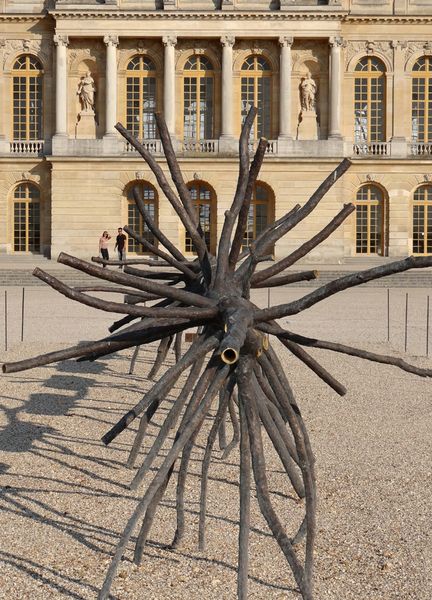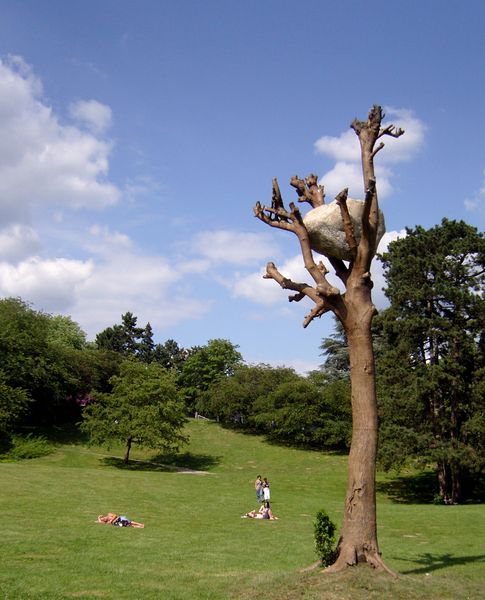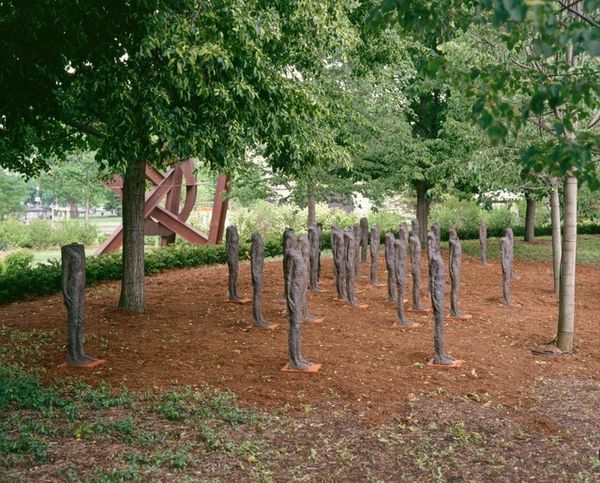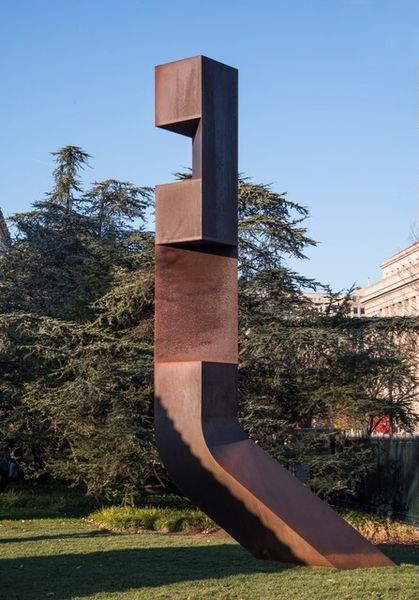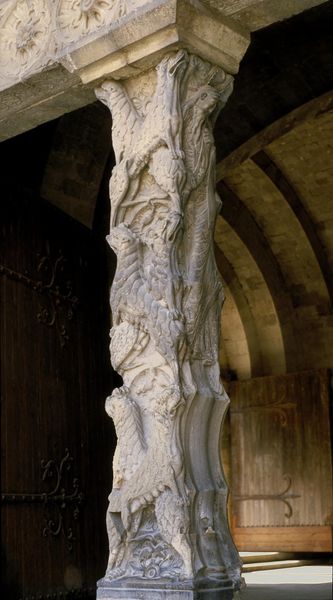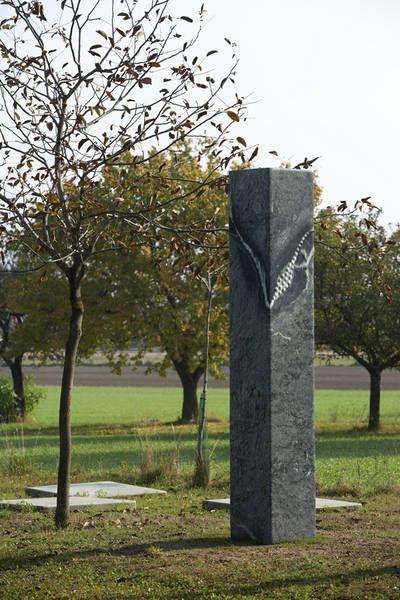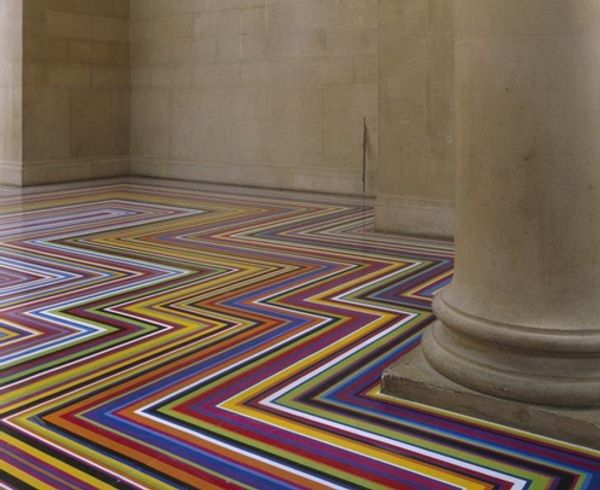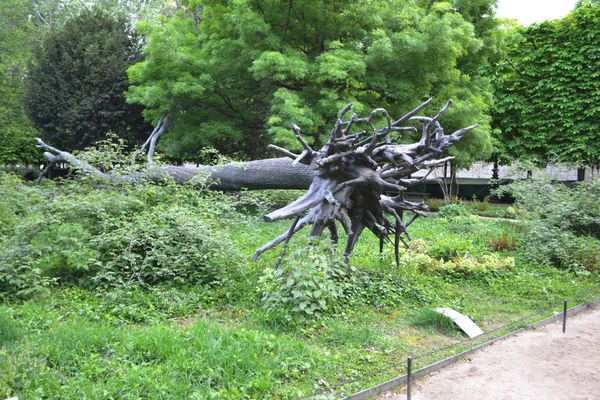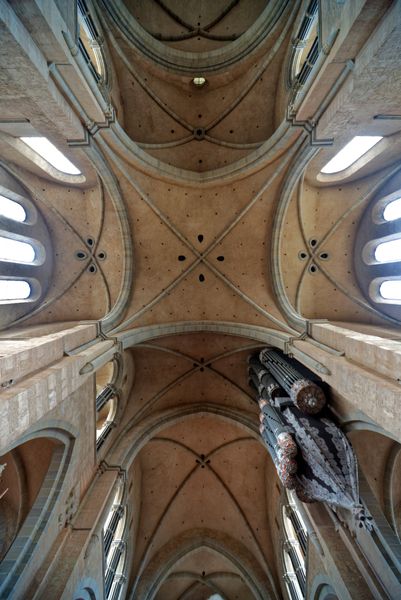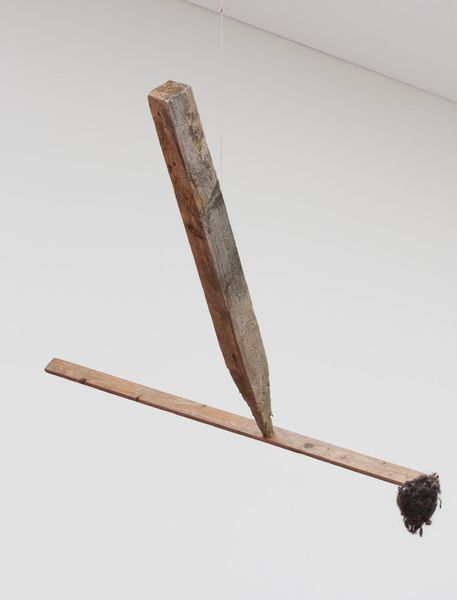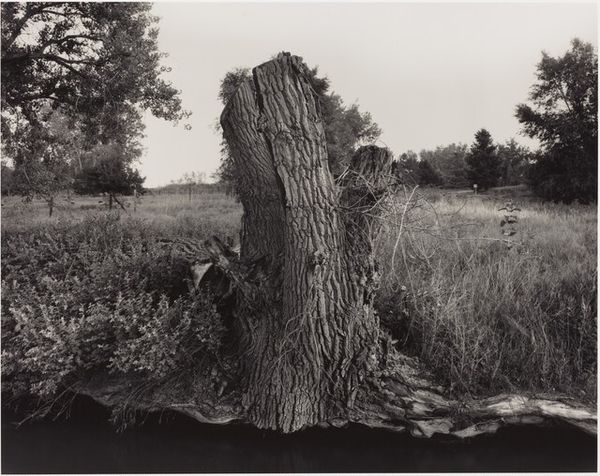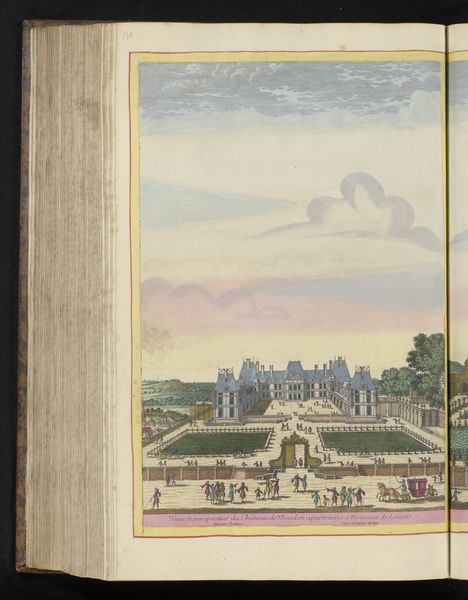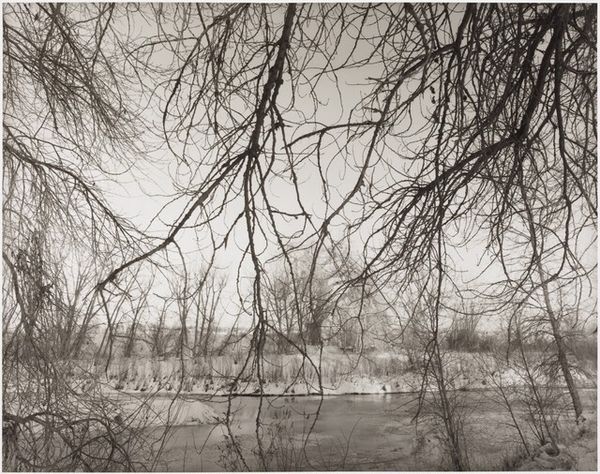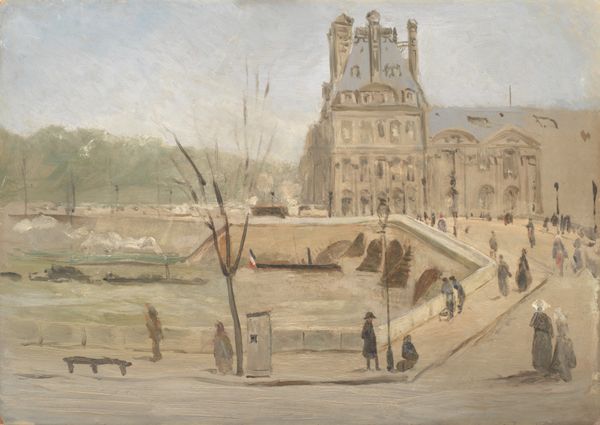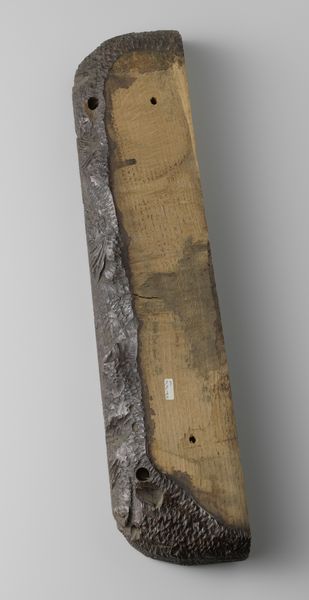
sculpture, site-specific, installation-art, wood
#
public art
#
sky
#
conceptual-art
#
postmodernism
#
sculpture
#
landscape
#
sculpture
#
site-specific
#
installation-art
#
wood
Copyright: © Giuseppe Penone
Editor: So this is Giuseppe Penone's "Untitled" sculpture, constructed with wood as an installation art piece in a specific location. The way the young tree emerges from within the older, split trunk is fascinating! What draws your eye when you look at this? Curator: The means of production here is incredibly direct. We see a tree, then *another* tree emerging. Penone is very deliberately highlighting labor—both natural growth and human intervention—to present nature as process more than static object. Look at how the surfaces contrast, both in texture and color. Editor: That's interesting. I was initially thinking about it in terms of its conceptual symbolism. Curator: Symbolism, sure, but consider the literal *splitting* of the wood, the careful insertion, the joinery – the very tangible evidence of the artist’s choices, impacting the material itself. This forces us to see landscape, and even the idealized landscape of Versailles, not just as backdrop, but as product. How does its site-specificity interact with the rigid formalism behind the Palace itself? Editor: Hmm, good point about the site and Versailles. It's a really stark contrast now that I think of it – the "natural" versus the highly constructed. How does that challenge our perceptions, do you think? Curator: It asks us to consider labor—the labor involved in shaping even what appears ‘natural’ or wild. Versailles itself embodies tremendous human labour transformed into a symbol of power and opulence, so placing the hand-worked wood next to this serves to highlight how wealth is created through raw materials and human input. Editor: So, instead of seeing the tree as just an object of beauty or symbolic nature, you're seeing its connection to industry and human endeavor? Curator: Precisely! The artwork becomes a question of who shapes nature and for what purpose. The consumption that sustains places like Versailles ultimately demands changes to raw matter, labor and all the political implications thereof. Editor: I've never thought about "nature" as a product that is 'worked.' This has definitely given me a new perspective. Thanks. Curator: Likewise. Examining the materiality encourages thinking about power, history, and nature, so thanks for letting me ramble.
Comments
No comments
Be the first to comment and join the conversation on the ultimate creative platform.
